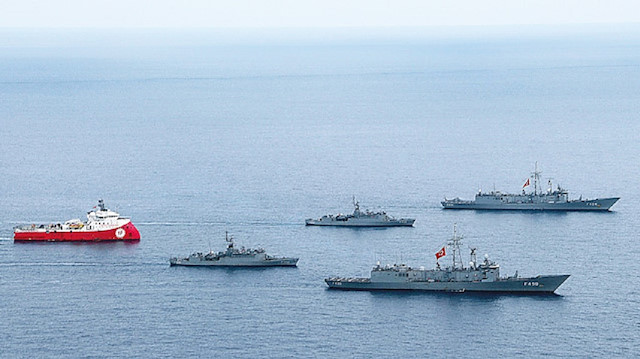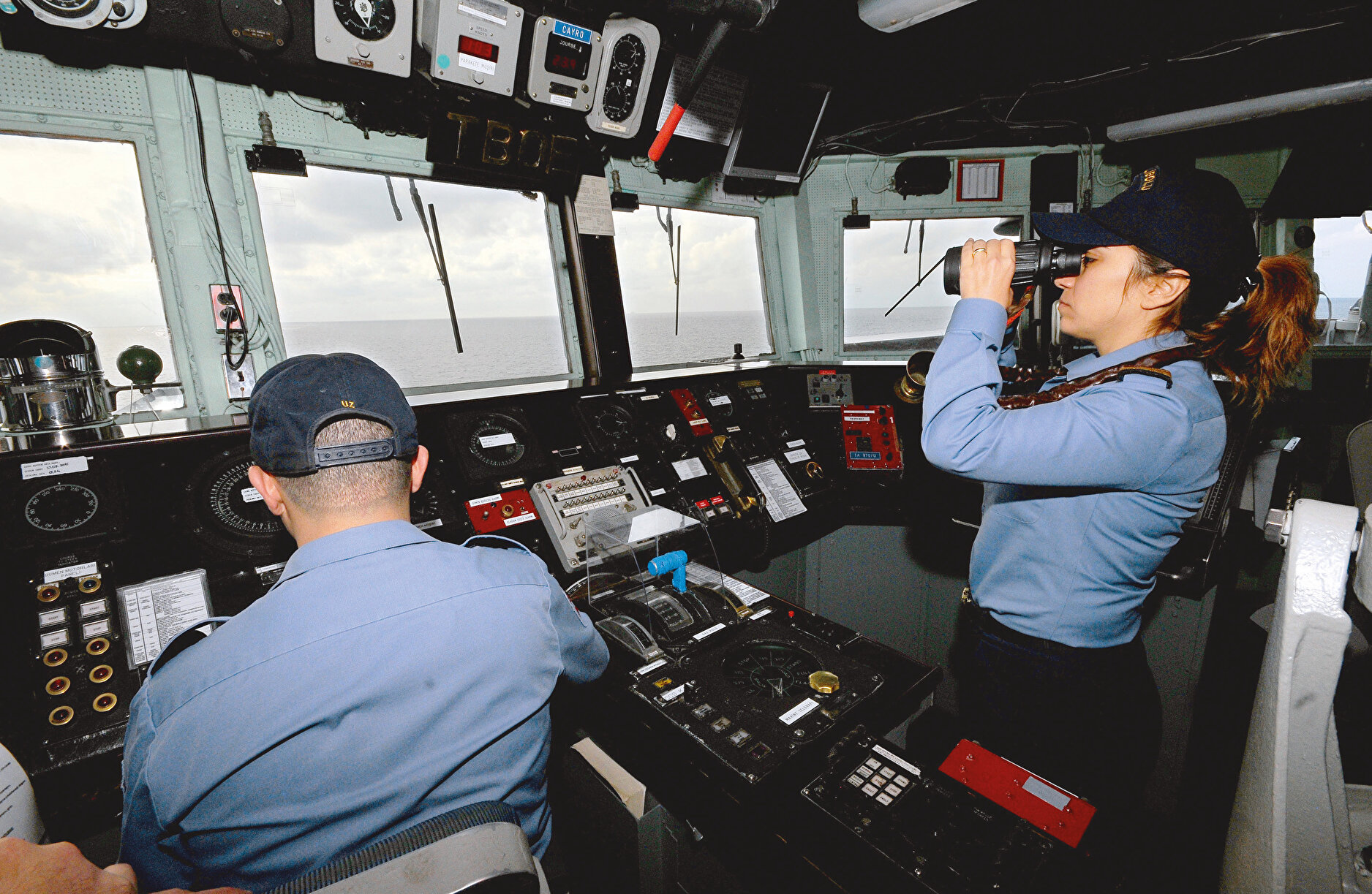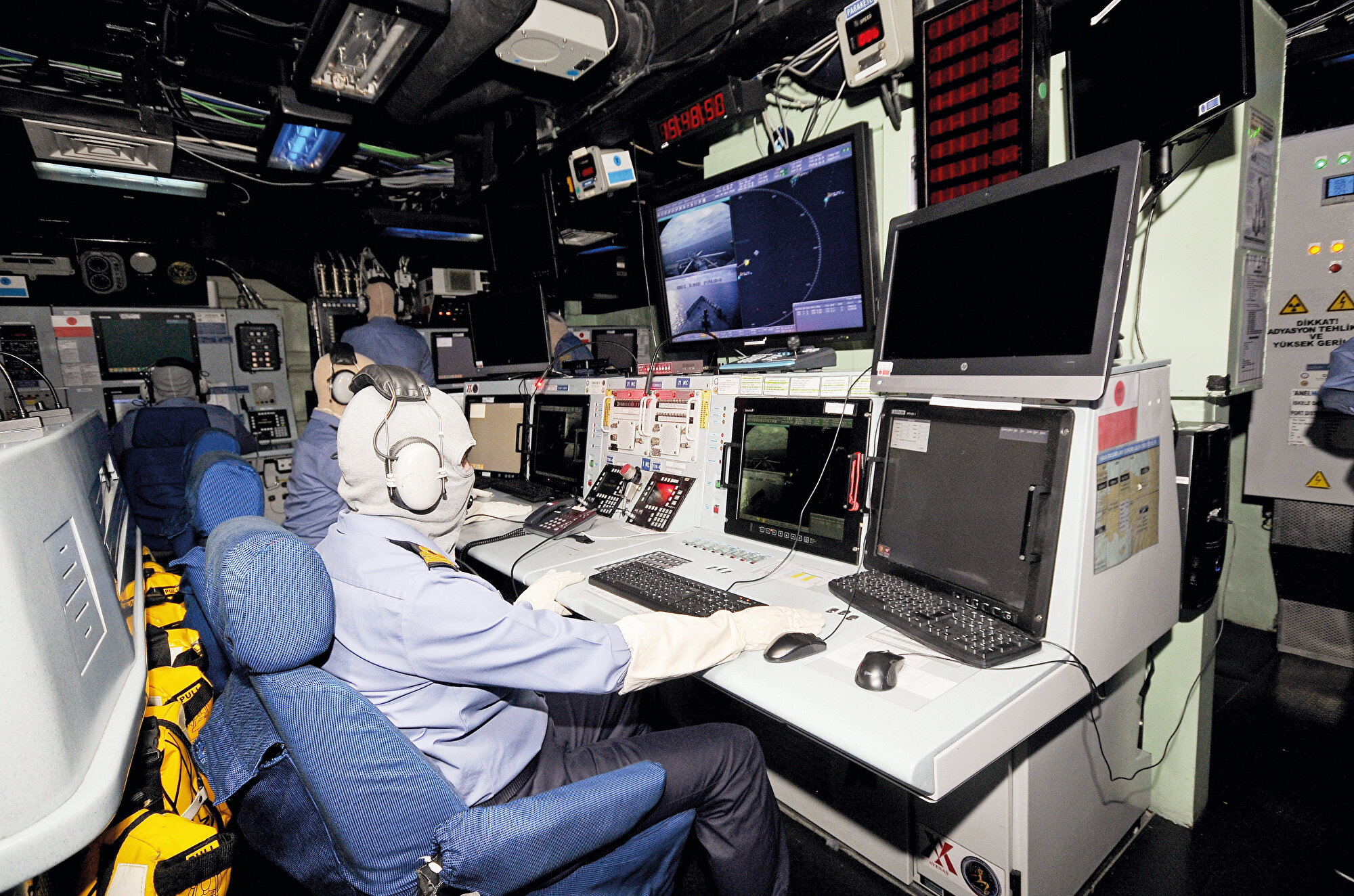
Operation Mediterranean Shield aims to guard Barbaros Hayrettin Paşa as it works in the Eastern Mediterranean
Turkish forces deployed in the Eastern Mediterranean as part of “Operation Mediterranean Shield” are monitoring developments at sea. The fleet’s duty is to protect Barbaros Hayrettin Paşa, a Turkish seismic vessel working in the Eastern Mediterranean which has previously been the target of a Greek frigate trying to interfere with the research vessel.
Despite Greek interference during the early days of Barbaros Hayrettin Paşa’s exploration in October, Greek vessels have not crossed its path since Turkish forces responded to that frigate.
Barbaros Hayrettin Paşa, which was bought from Norway in 2013, has been conducting exploration operations in the Mediterranean since April 2017.
Turkey has consistently contested the Greek Cypriot administration’s unilateral drilling activity in the Eastern Mediterranean, while asserting that the Turkish Cypriots also have rights to the resources in the area.

“Our aim is to protect our seas from all threats and ensure we can move safely in these areas. Recently, the Eastern Mediterranean has hosted a large number of ships, including offshore aircraft ships, as well as aircraft carrier missions from different countries. The navy has been protecting Turkey’s rights and interests in the region through Operation Mediterranean Shield since 2006,” said Western Mission Group Commander Yalçın Özkütük.
“The aims of Operation Mediterranean Shield are to: support the protection of our interests in the Eastern Mediterranean; to establish situational awareness in Turkey’s maritime jurisdiction; deter potential illegal activities; and ensure the safety of oil transportation from the Yumurtalık and Ceyhan terminals. As part of Operation Mediterranean Shield, developments in the Eastern Mediterranean are closely followed and research vessels found to be engaging in illegal activities are warned and, when necessary, intervened in. Additionally, Turkey’s seismic research vessels are protected as part of the operation,” he added.
“Normally, research vessels carry out their activities with support vessels. However, due to the occasional interference of Greek warships, Turkish warships are also necessary. We, as the Turkish Naval Forces, provide support and protection and do not allow Greece to violate international law.”

The Kalkan fast attack craft warship that is taking part in the Operation Mediterranean Shield has a loaded displacement of 560 tons and measures 63 meters in length. The warship hosts a total of 47 personnel, including officers, non-commissioned officers, specialist officers and contracted staff.
With its advanced weaponry, the Kalkan is able to remain in battle at sea for days. It houses a secret and strategic War Operations Center onboard. All communication and information sharing as well as the ships operation is managed from this center.
Ships of the fleet, including the Gaziantep and Gökçeada frigates and Bozcaada and Bandırma corvettes, take turns in guarding Barbaros Hayrettin Paşa. Their duty is to protect the seismic vessel from attacks and ensure no ship interferes with its work. In order for Barbaros Hayrettin Paşa to obtain sound research results, its path must not be interrupted.
The software, consoles, and artillery fire system are among the domestically-produced equipment fitted in the Operations Center of the Gaziantep frigate. Although the warship was purchased from the U.S. years ago, it has been refitted with many Turkish pieces of equipment. The frigate’s Operations Center monitors national as well as international duties, including NATO commitments.
Gaziantep has a loaded displacement of 41,000 tons and measures 135.5 meters in length. There is close to 180 personnel onboard, including officers, non-commissioned officers, expert cadets and contracted personnel. The warship can be decked with antisubmarine warfare, electronic warfare and marine helicopter equipment.
Barbaros Hayrettin Paşa’s route is within Turkey’s continental shelf and therefore within Turkey’s exclusive economic zone (EEZ). Although Turkey has rights regarding the exploration and use of marine resources of this region, it is not shut off to other countries who may cruise and/or fly in the area.
However, it must be noted that Turkey has not yet declared the region its own EEZ. Despite the area not officially being Turkey’s EEZ, the country protects its rights and interests there.
The navy supports diplomatic initiatives to end unauthorized activities. In line with this, Turkish warships blocked a rig belonging to the Italian energy firm ENI from reaching an area off Turkish Cyprus from searching for gas in February.
One portion of Turkey’s continental shelf has been recognized by the United Nations. Turkey is conducting research and exploration activities in the Eastern Mediterranean as per the guidelines of the deal reached with northern Cyprus in 2011.
Hello, the comments you share on our site are a valuable resource for other users. Please respect other users and different opinions. Do not use rude, offensive, derogatory, or discriminatory language.
The floor is all yours.













